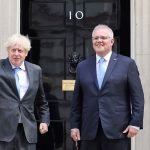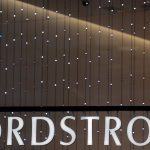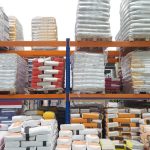Pushed to name those business sectors that had been hit hardest by COVID-19, most people would plump for aviation, hospitality or live entertainment.
Attracting fewer guesses, probably because it is business-to-business rather than business-to-consumer, would be exhibitions and trade fairs.
As it happens, the UK boasts the world’s biggest exhibitions organiser, Informa.
Today it spelled out in grisly detail the extent to which its fortunes have been flattened by the pandemic.
The FTSE-100 company, which employs more than 10,000 people in 30 countries around the world, reported a full year pre-tax loss of £1.14bn on a statutory basis.
That compared with a pre-tax profit on the same basis of £318.7m in 2019.
On an adjusted basis, which excludes items such as goodwill impairments (a write-down in the valuation of some assets), pre-tax profits fell by 79% to £170.4m.
It reflects the fact that sales during the course of the year fell by almost 43%, to £1.7bn, as a result of the mass cancellation of events.
Of Informa’s five units, the fall in sales was worst at Informa Markets, a business that, in a normal year, would run more than 500 events, exhibitions and trade fairs.
These range from the Fort Lauderdale International Boat Show to the Malaysian International Furniture Fair and from World of Concrete – one of the biggest annual get-togethers in the building materials sector – to the Farm Progress Show, where farmers and their suppliers come together.
Some of these events were replaced with virtual events but, clearly, the company still suffered a hit.
Sales in the division were down by more than 63%.
Other operating divisions also took a hit.
Informa Connect, which runs events and digital platforms where professionals such as scientists and financiers come together to connect and share ideas, suffered a drop in sales of more than 56%.
Informa Tech, which provides research, consultancy services and training to the tech sector, saw sales drop by nearly 46%, again reflecting that a lot of its services are delivered at events, among the most famous of which is London Tech Week.
There was also a near 13% fall in sales at Informa Intelligence, a provider of data and specialist information to more than 30,000 subscribers worldwide and whose most famous product is Lloyd’s List – the 287-year old provider of shipping data and news to the maritime industry.
Just about the only division which was unscathed by the pandemic was Taylor & Francis, the book and journal publisher, whose brands include Routledge, the storied publisher of some of the world’s greatest thinkers and scholars, including Sigmund Freud, Jean-Paul Sartre, Ludwig Wittgenstein and Friedrich Hayek.
Its sales were more or less unchanged during the course of the year.
As Lord Carter, who became chief executive in 2013, noted: “We would not have wished any of the circumstances of COVID-19 for anyone, let alone for our business…in our events business, when the world closed and we all went remote, the same was true for the provision of services to our B2B customers.
“We did have a range of capabilities, but they were varied and, in some cases, patchy.
“And, in some areas, not really fit for the level of scale that you need when half of the world’s population is in forced lockdown.”
However, Lord Carter, who was previously chief executive of the cable company NTL – now part of Virgin Media – before becoming the first chief executive of the media and telecoms regulator Ofcom, insisted that the company had not let the crisis go to waste.
He added: “2020 really was a real live crash course in how you accelerate capability in any or all of these services, a simple hybrid event or a virtual event, online matchmaking, directory services, product services, search services, video services, webinar services.”
His message, then, is that Informa used the crisis to step up and expand the provision of digital services.
In the meantime, the company – which was founded in 1998 and which expanded dramatically 20 years later with the acquisition of the former Daily Express publisher UBM – was also forced into emergency financial surgery, cutting its costs by around £400m and bringing down its net debt by £600m.
All of that, of course, is in the rear view mirror.
Falkirk-born Lord Carter was keener today to discuss where Informa goes from here.
Describing 2021 as a “transition year”, he is optimistic for the return of live events, firstly in mainland China, North America and the Middle East, with Europe coming later.
The company has already run a “pop up” fashion event in Orlando, Florida, in February and has also run two yachting events in the US – the Palm Beach International Boat Show and the St Petersburg Power & Sailboat Show.
One particular highlight he cited is World of Concrete which, next month, will welcome more than 30,000 visitors and exhibitors to its event in Las Vegas.
He added: “We’re delighted to be going back to Vegas.
“We put a lot of work into that reopening programme with the authorities on the ground.”
He also pointed to the strength of now having a “non-trivial” business in running virtual and hybrid events and of being able to depend for a big chunk of sales on subscriptions that customers are loath to give up even in the toughest of times.
That reflects the vast degree of specialist knowledge and expertise that resides in the business, built up over years, or in the case of Lloyd’s List, centuries.
However, as the 2.5% fall in the share price today suggests, the market – rightly or wrongly – views this company as predominantly one whose fortunes stand or fall on the ability of people to travel and meet each other.
Investor sentiment towards it will therefore depend to a large extent on the speed with which travel opens up again.






















